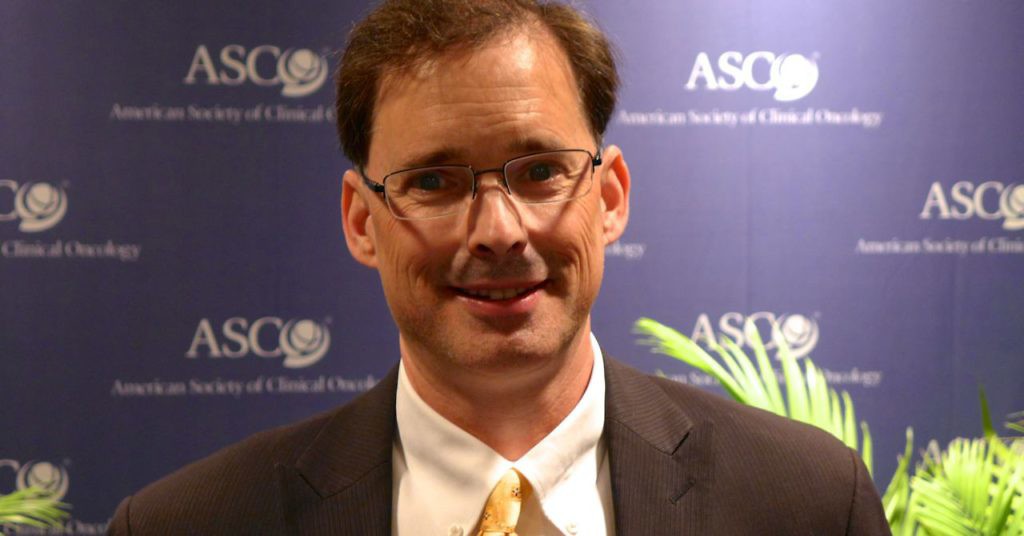Future of Prostate Cancer Immunotherapy
Immune checkpoint inhibitors that target CTLA4, PD1 and PDL1 can generate prolonged responses in a minority of patients, but the results so far in prostate cancer have been disappointing. Prostate cancer doctors have not been part of the excitement spreading through the cancer community like a “Mexican wave.”
Prostate cancer has not featured significantly in the cancer immunotherapy news recently, but that’s not to say there is not a lot going on. The phase 3 trial results of ipilimumab (a checkpoint inhibitor of CTLA-4) in the pre-chemotherapy setting of advanced prostate cancer (NCT01057810) are expected soon and there is also the eagerly awaited phase 3 trial of the PROSTVAC vaccine (NCT01322490).

At ASCO 2015, BSB interviewed Dr James L. Gulley, MD, PhD Chief of the Genitourinary Malignancies Branch and Director of the Medical Oncology Service at the National Cancer Institute (pictured above).
He talked about some of the cancer vaccine work he has done as part of the CRADA (Cooperative Research and Development Agreement) between the NCI and Bavarian Nordic, as well as strategies to help immunotherapy work in those tumors such as prostate cancer that are non-inflamed, where there may be an insufficient immune response for checkpoint inhibitors to work effectively.
Readers may recall we interviewed him at ASCO GU earlier year, “How to make non-immunogenic cancer sensitive to checkpoint inhibitors.” His outstanding work could shape the future of prostate cancer immunotherapy.
This post also includes additional ASCO 2015 commentary on from Dr Oliver Sartor, Professor of Cancer Research at Tulane University, who shared his perspective on the ipilimumab and PROSTVAC phase 3 prostate cancer trials that are due to readout soon.
Subscribers can log-in to read our latest insights or you can purchase access to BSB Premium Content.
This content is restricted to subscribers